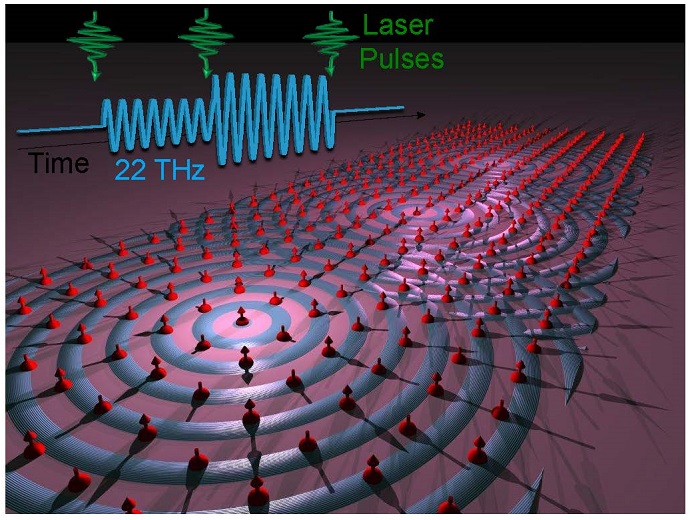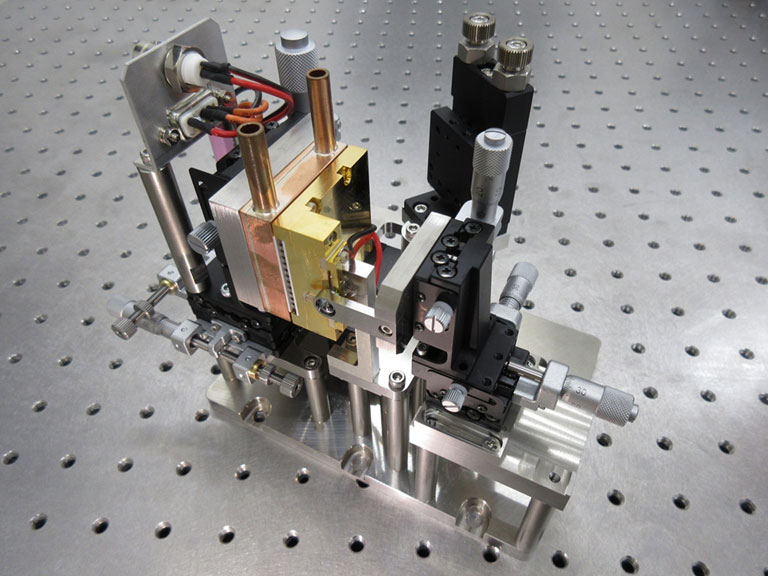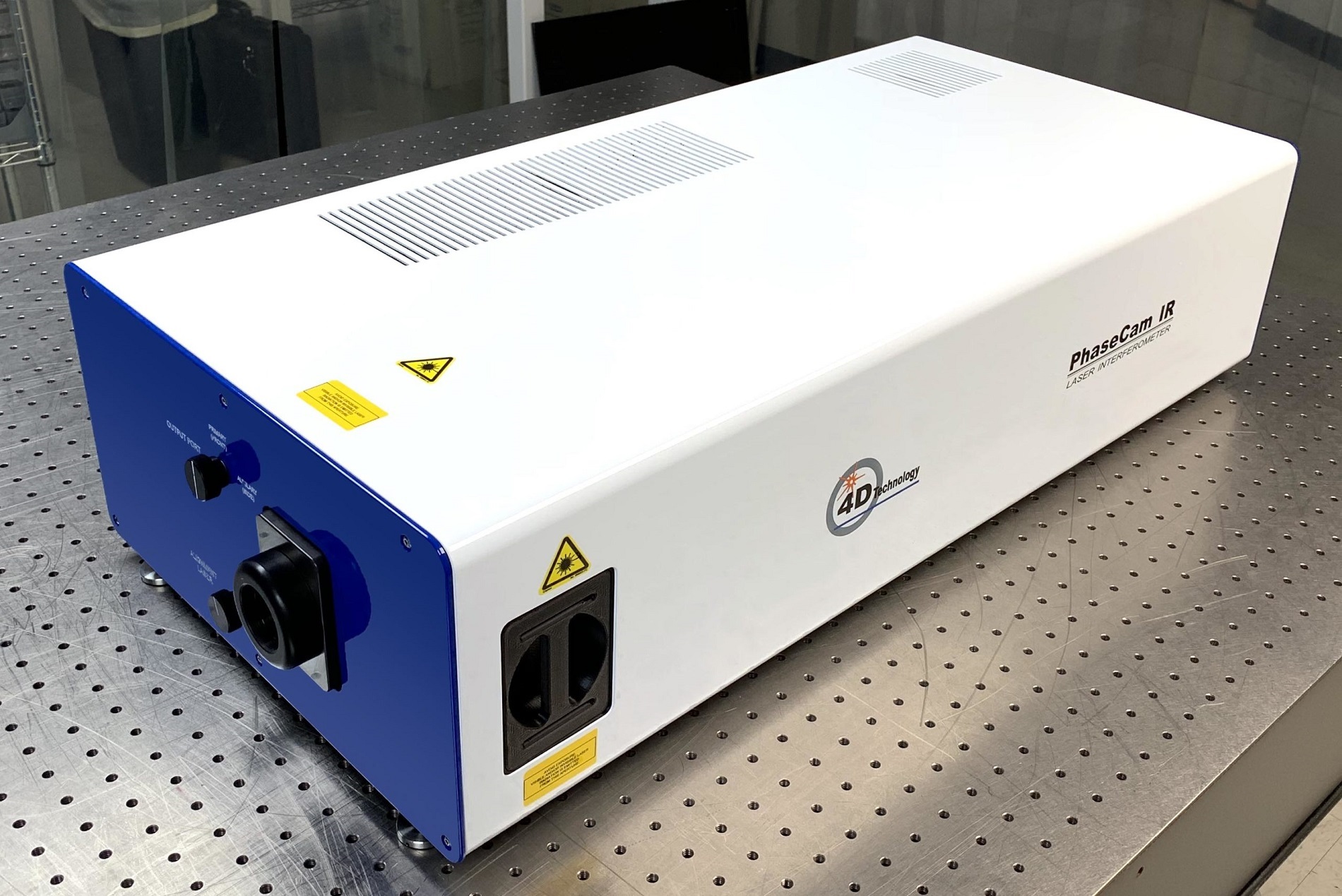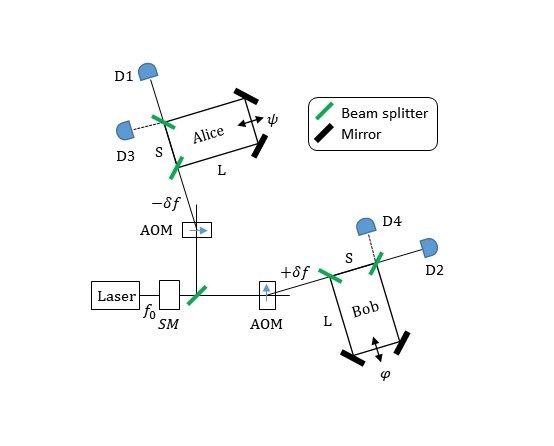February 5, 2016
The rise of the digital information era posed a daunting challenge to develop ever faster and smaller devices for data storage and processing. An approach which relies on the magnetic moment of electrons (i.e. the spin) rather than the charge, has recently turned into major research fields, called spintronics and magnonics.
An international team composed by scientists of FOM, the Radboud University in Nijmegen and the University Politecnico di Milano (Italy) realized the ultimate speed limit of the control of spins in a solid state magnetic material. Using femtosecond (1 fs=10-15 s) laser pulses the researchers were able to induce spin oscillations of the intrinsically highest frequency. A complete and arbitrary manipulation of the phase and the amplitude of these magnetic oscillations (also called magnons) were demonstrated. Even more remarkably, the length-scale of the magnons is on the order of 1 nm. These results pave the way to the unprecedented frequency range of 20 THz for magnetic recording devices, which can be employed also at the nanometer scale.
The practical implementation of other schemes of magnetic control, based on the use of electric currents, is hampered by a significant heating, which requires cooling systems. It is thus important to underline that the concept reported by FOM PhD Bossini and collaborators in the paper published in Nature Communications does not involve any heating. This makes their study even more appealing from the point of view of applications. However, the possibility to monitor the evolution of a magnet on such short time- and length-scales simultaneously is a major breakthrough also in terms of fundamental science. A new regime, defined by Bossini femto-nanomagnonics, has been disclosed.
Read the full article (open access).
This work was supported by the European program LASERLAB, the European Research Council and by the Dutch Stichting voor Fundamenteel Onderzoek der Materie (FOM).















